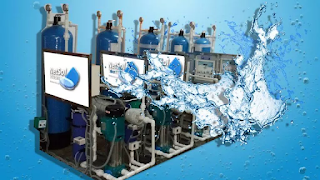Is RO water business profitable?

Since water is a need for all living things, it makes sense to make money out of it. Despite the level of competition in this sector, India's population growth of about 2-3% annually demonstrates that there is a solid opportunity to build up a mineral water factory there. People no longer like to drink regular water or the tap water that is widely utilised in India. However, as people become more conscious, they are gravitating toward mineral and refined water, particularly that which has been filtered using a reverse osmosis system. Starting an RO mineral water business would be a smart move for you to do because there are so many health-conscious consumers out there. The answer to the question raised above is a simple yes. But, to get clear of any doubt we present to you this blog of full knowledge about the profits made via RO water business: Overview: RO water is safer and healthier than regular tap water. People now understand how important it is to drink clean wa



